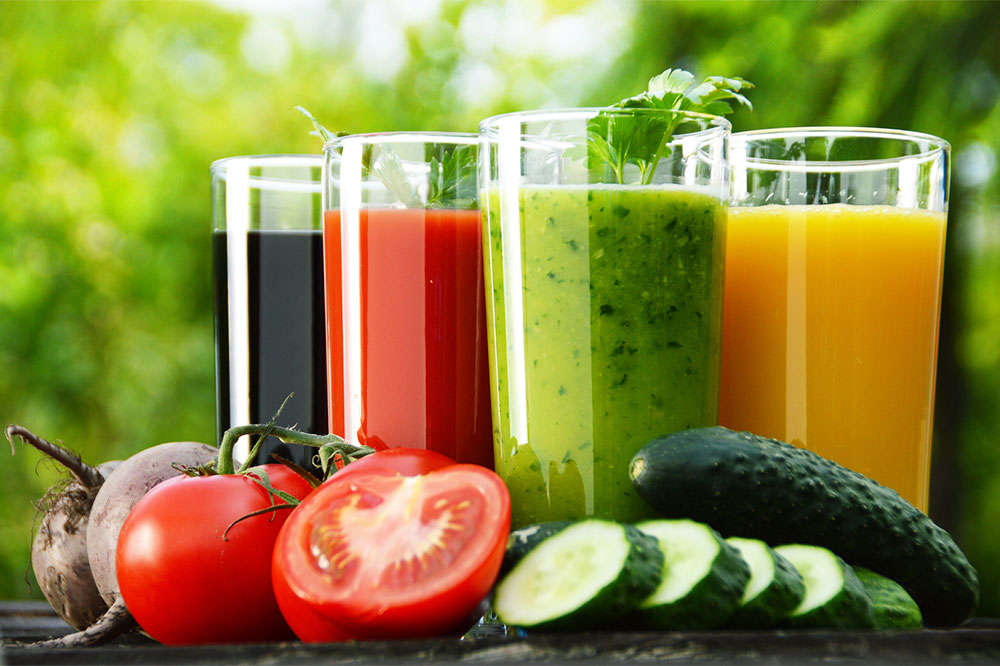Cleansing and Detoxification – Is it the same or do they differ?
We often think the entire purpose of cleansing & detoxification is the same. Both are the means to clean our bodies of the innumerable toxins we encounter daily. Having said that, do these two words really mean the same, or is there any difference? For most of us, cleansing & detoxification are interchangeable terms.

What is detoxification?
This is a process that is closely interlinked with the metabolic activity of the body. The liver plays the most crucial role here, as its primary role is detoxification. Our body contains a fair amount of toxins, for example, air pollutants that enter the body through the nose, mouth, and skin. Also, heavy metals and chemicals find a way to enter the physical system of the human body. These toxins must be flushed out regularly to keep the body healthy and fit. Detoxification is a process that helps convert these toxins into waste and then eliminate them from the body, with the liver at the center of the entire process.
What is cleansing?
Cleansing also helps detoxify the body and flush out toxins but mainly focuses on the digestive tract of the human body. Various nutritionists and nutrition-based programs offer different cleansing programs. This can be described as an eating program that trains the body to eat clean by consuming wholesome, natural, and minimally-processed ingredients. The cleansing programs are meant to rest your gut so that it is rejuvenated enough to fight off common digestive issues like bloating or bowel irregularity issues.
How are they similar?
The crux of both processes is consuming nutrient-rich healthy foods and maintaining a clean diet. The result of both is about feeling good and better, whether it is about feeling energetic or getting back the food cravings like before.
But, beyond this, there is not much similarity between the two. They are individual entities with unique goals and methodologies.
Difference Between Cleansing & Detoxification
Goals
Cleansing is about keeping everyday meals clean and supporting the body’s natural and regular detoxification process. Its primary purpose is to cleanse the digestive system.
Detoxification programs are more comprehensive and stringent as they intend to clean up at the cellular level. The overall purpose is better health, getting back into shape, and flushing out toxins. The primary goal is to detoxify the entire body.
Duration
A cleansing program is usually a short-term affair; detoxification, on the other hand, is a long-term process.
Cleansing eating programs last for a few days or a week mostly. Detoxification programs take longer, from a couple of days to some weeks, as they involve making changes to lifestyle and dietary choices.
Processes involved
Cleansing programs are mainly focused on eating habits. Emphasis is laid on eating good-quality organic food, mostly vegetable soups with some homemade non-veg portions. Sometimes, juicing is also recommended, though soups are better as they are more filling, have more fiber, vitamins, and minerals, and are low in sugar.
Detoxification involves three intricate phases to detoxify the liver. These phases revolve around releasing toxins, neutralizing their effect, and finally, flushing them out of the body. Some of the processes involved in detoxification are fasting, using a sauna, consuming certain food types and herbs, drinking certain beverages and juices, colon cleansing, etc.
Types
There are three types of cleansers.
Colon Cleanse: This consists of high-fiber veggies and fruits, including filtered water.
Juice Cleanse: This consists of juices that relax the digestive system.
Parasite Cleanse: This mainly consists of unprocessed foods and certain herbs and essential oils.
There are two main types of detoxification programs:
Intense detoxification: Involves healthy food with colon hydrotherapy.
Manual therapies: Involves massages, exercises, and sauna therapy.
Possible Side-Effects – A Word of Caution
Malnutrition, headaches, stomach pains, fatigue, loose stools, nausea, dizziness, stimulated appetite, increased stress, increased weight, protein and vitamin deficiencies, lactic acidosis, electrolyte imbalance, and death can result from intense detoxification programs.
Similarly, cleansing programs can result in diarrhea, hunger, empty bowels, and purging disorders.
Therefore, experts recommend adopting a healthy lifestyle, exercising routinely, and having balanced meals to achieve fitness goals, detoxification, increased energy levels, and improved digestive health.
Detoxification and cleansing programs are not advisable for pregnant ladies, teenagers, or people with health issues like diabetes and heart diseases.
Cleansing & Detoxification processes have been studied extensively. While there are benefits, you must research the processes, ingredients, and marketing claims of companies selling such products before trying them. Only FDA-approved products and programs must be consumed and followed for the best results. Also, it is recommended that you speak to your doctor before making any decision.











